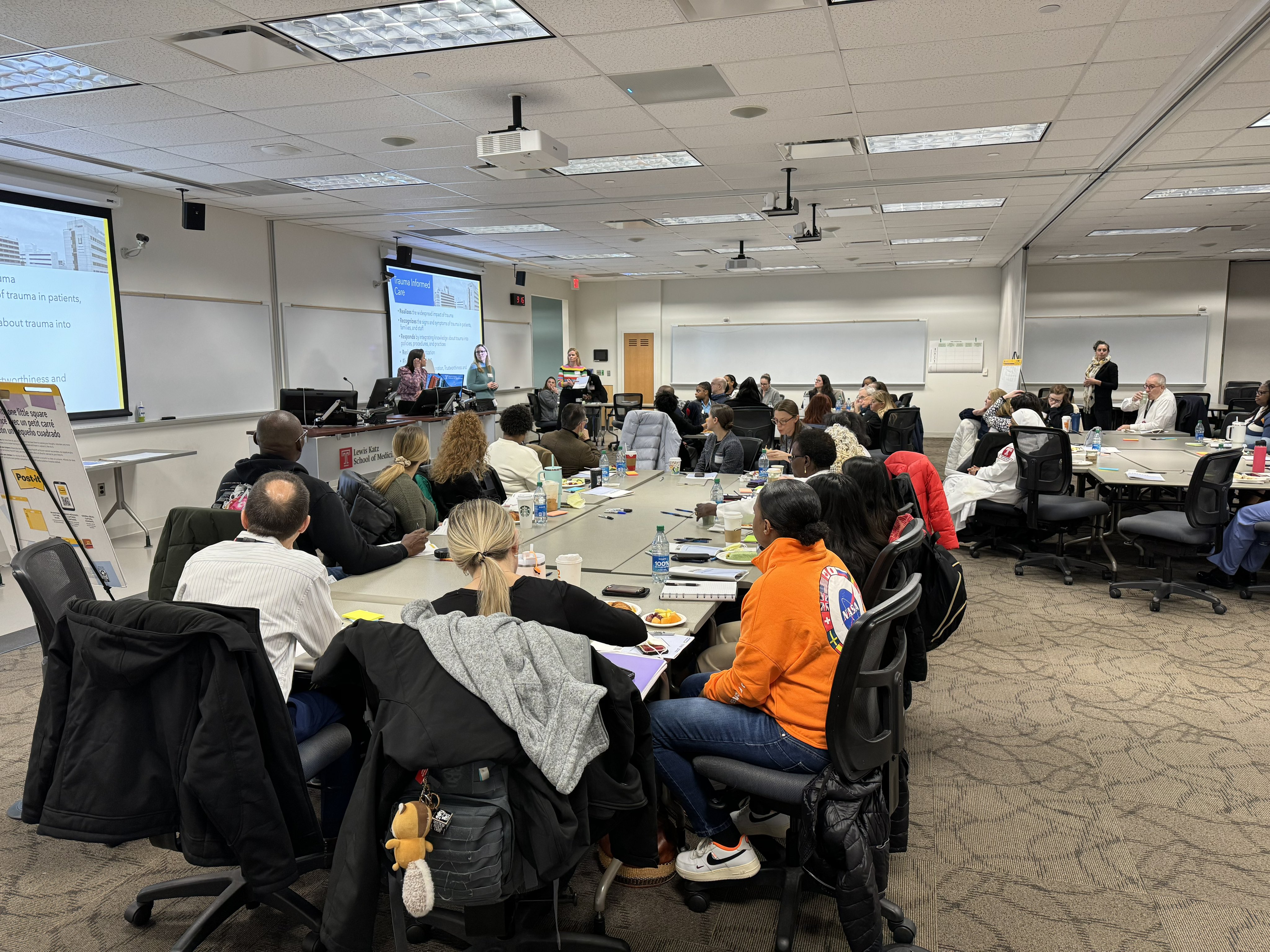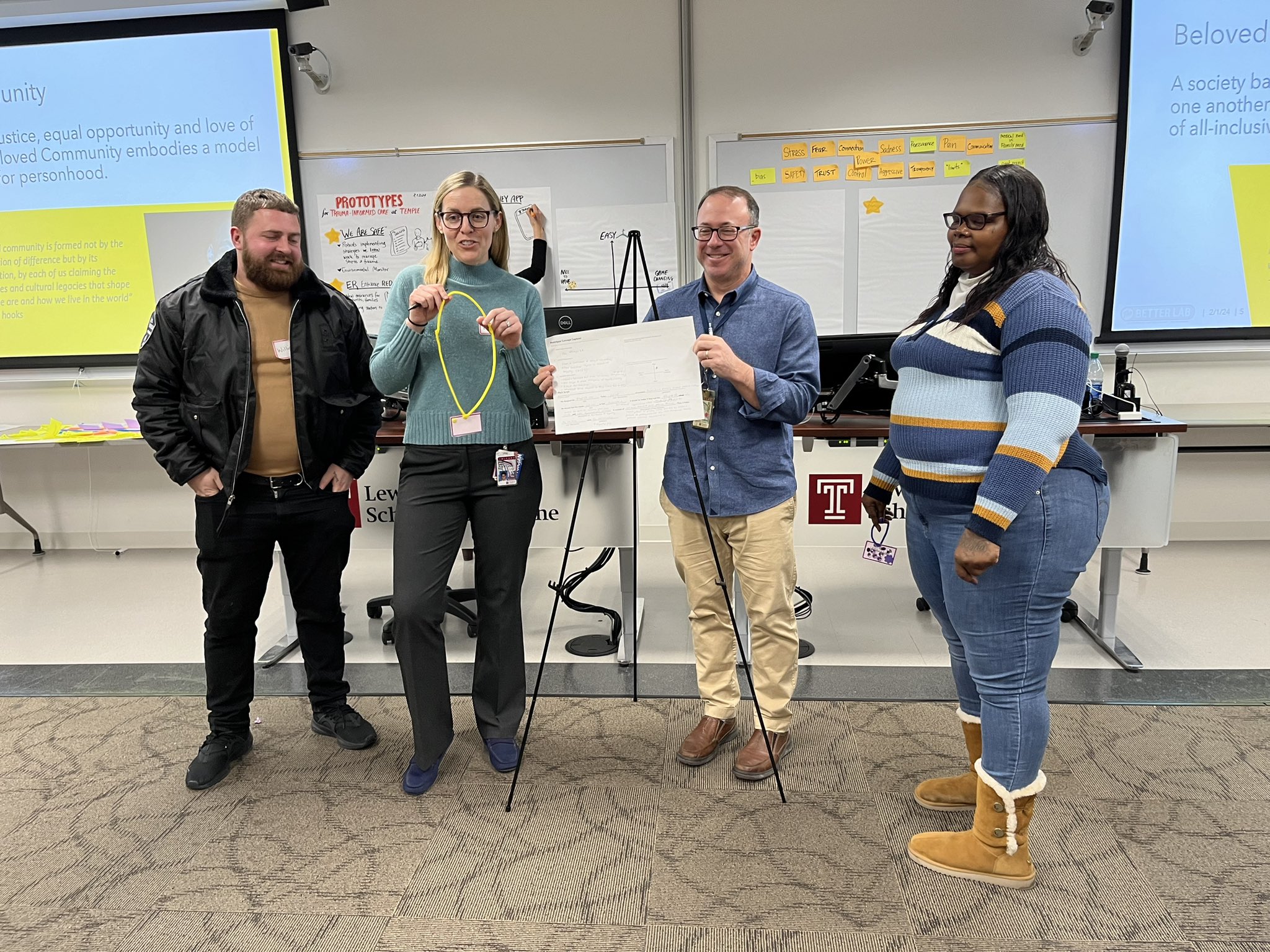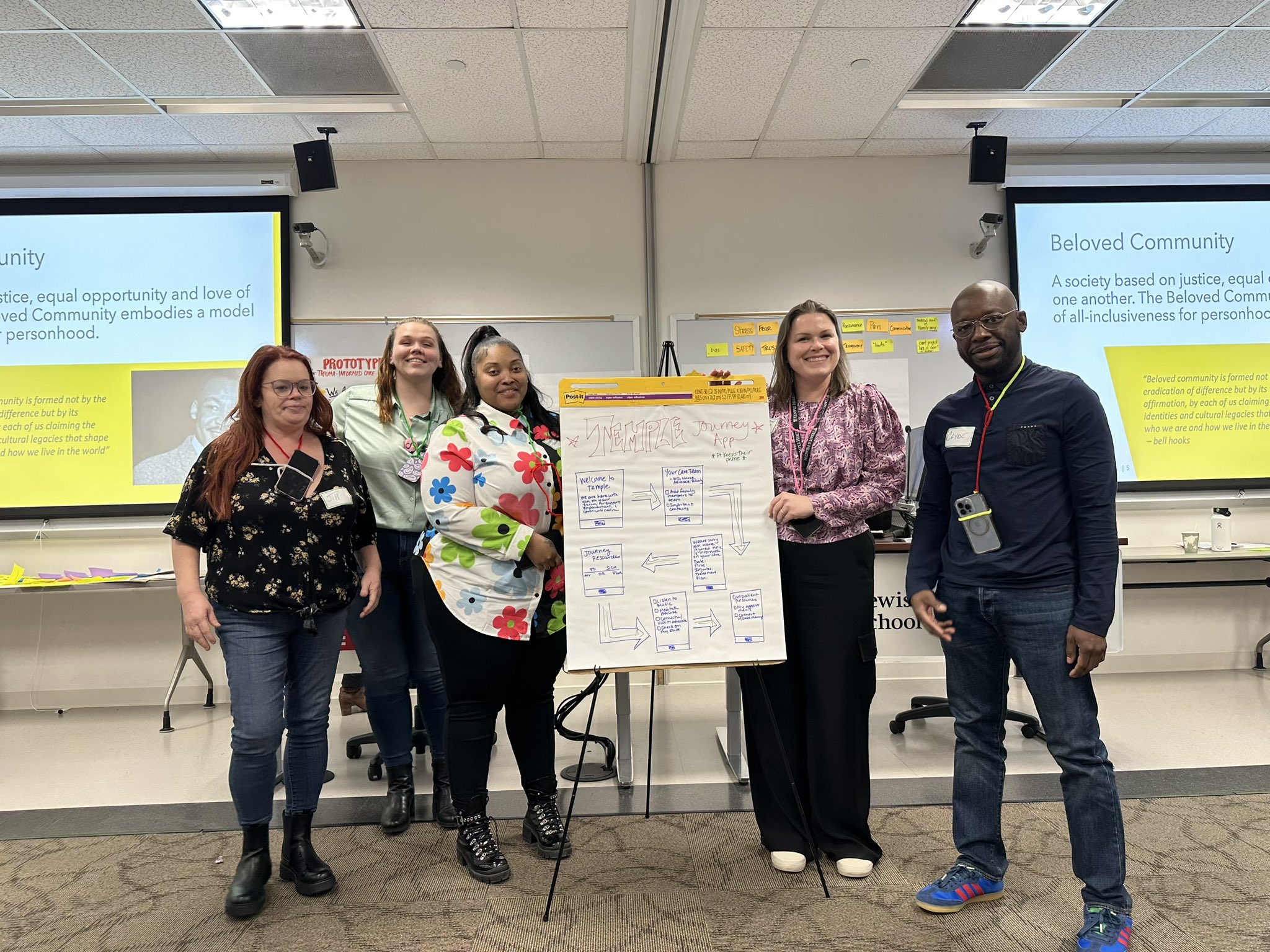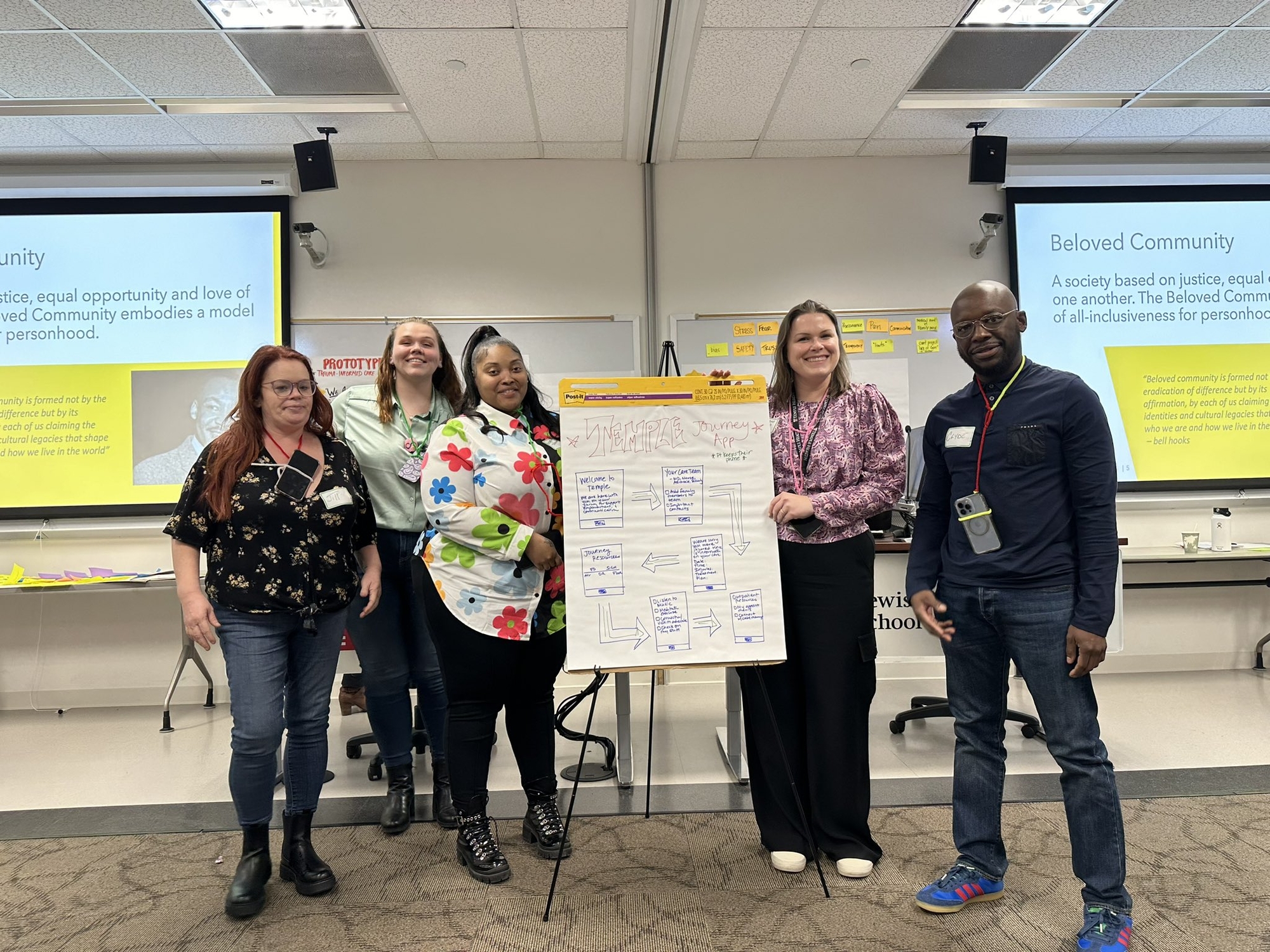How Temple Health is Implementing Trauma-Informed Care in Spaces Where It’s Needed Most
Temple University Hospital (TUH) treats the largest number of firearm-injured people in Pennsylvania. When we think about the medical treatment of firearm-injured patients, we must consider a holistic approach to treatment that takes trauma into account — for both the patients and their families.
Trauma-informed care (TIC) is a treatment approach that recognizes the widespread nature of trauma and seeks to mitigate its negative impacts — it’s recommended as a key part of patient-centered comprehensive care for firearm-injured people. In 2023, Accelerate Health Equity (AHE) awarded Temple Health, along with three other health systems in Philadelphia, a year-long grant to research and implement TIC programs through its Gun Violence Prevention Grants Program.
Through AHE’s funding, the Temple Health team is conducting focus groups and workshops to develop and pilot a TIC education program to equip healthcare team members with the skills needed to recognize and respond effectively to trauma’s manifestations and resist patient re-traumatization. Recently, The Temple Health team hosted an in-person day-long Human Centered Design Workshop as part of this program. Nearly 50 front-line staff and hospital leaders gathered to brainstorm solutions to improve the implementation of TIC education, as well as envision how TUH can become a more trauma-informed institution.
We spoke with Dr. Jessica Beard and Dr. Megan Healy — project leads for Temple Health — to learn more about the status of their work and what learnings they gleaned from their recent workshop.
Tell us a bit about the work you're conducting through AHE's Gun Violence Prevention Grants Program and the current stage of the project.
Our work aims to advance trauma-informed care for patients at Temple University Hospital. Trauma-informed care (TIC) is a framework focused on the provision of empathic and patient-centered practices — it recognizes that many patients have experienced significant trauma in their lives before they arrive at the hospital and can be re-traumatized by their experiences of care. Our primary aim is to improve care for firearm-injured patients by implementing TIC education for various staff groups, specifically security personnel, and nurses.
Previously, we have been successful in training both attending and resident physicians in TIC, but found it challenging to reach other staff who also interact with patients and families. We know these staff members are interfacing with patients throughout their time in the hospital and can serve as ambassadors of trauma-informed care. Therefore, we believe that by equipping all team members with the skills to recognize manifestations of trauma in our patients and respond effectively, we can improve the therapeutic alliance with patients, strengthen patients' sense of safety and agency, and interrupt cycles of violence. Along with education, we also aim to design and plan interventions that would support TIC here at Temple by assembling key stakeholders and inspiring change.
Why was it important for your team to conduct a Human-Centered Design Workshop and what makes Temple University Hospital well-positioned for this work?
Trauma-informed care is a human-centered enterprise — to put these principles into action requires not only education but culture change. One of the key tenets of effective culture change is to involve key stakeholder groups in the design and interventions.
For our workshop, we partnered with experts from UCSF's The Better Lab, who have led similar initiatives to address complex healthcare problems. We first heard from our nursing and security staff through focus groups. These focus groups helped us identify insight statements which we used as the jumping-off points for our discussions. For example, one insight statement was: "patients need empathy to feel safe, and staff need safety to be empathetic."
We had nearly 50 different staff members participate in the workshop, including security staff, nurses, trauma outreach staff, social workers, physicians, and hospital leadership. The insight statements served as the inspiration for small multidisciplinary groups to design and propose interventions to advance trauma-informed care for firearm-injured patients.

We were most impressed by the level of engagement we saw across the key stakeholder groups — two department Chairs were present, in addition to multiple hospital and medical school leaders, nursing and security supervisors, physician champions, and frontline staff. Having a forum for participants to share their perspectives, hear from others, and consider the patient's journey through the hospital was very impactful.
From the start, our group was intentional about working collaboratively — the project leadership team includes not just physicians, but also a nurse with lived experience of violence, our trauma outreach manager, a psychologist, and a patient who was cared for at Temple Health after a serious injury. We are grateful for the wisdom of this team in designing this project to be an inclusive and impactful endeavor.
What was the largest takeaway from the workshop and how did it help guide/support your project? Did you receive any helpful feedback from participants?
The biggest takeaway was that human-centered design works! The outputs of the workshop included 31 themes, 172 ideas, and 9 prototypes. Participants presented their prototypes and others were able to vote on the interventions they would be most interested in pursuing here at Temple. The democratic nature of the process helped us to see the needs, as well as the untapped energy and potential of the interventions.
Our workshop prototypes were focused on a few key topics:
- Patient navigation of the health system;
- Tailoring the patient care experience;
- Staff support for vicarious trauma;
- The built environment; and
- Enhanced teamwork/communication
We also learned from the workshop that there is a need for ongoing education of all staff groups so we can better understand TIC and be better prepared to implement the principles in our day-to-day practice of medicine.
Our next step is to move ahead with plans for staff education. We will also be bringing several of the workshop prototypes back to our patients to get their feedback and improve the potential interventions. The participants let us know that they appreciate the human-centered design process and how the focus groups led us to think through real-world, tangible solutions to improve the patient experience. We are excited to continue planning the next steps and engaging the workshop participants as champions for TIC as we bring their ideas to life!


To learn more about this ongoing project at Temple Health, visit our website.

